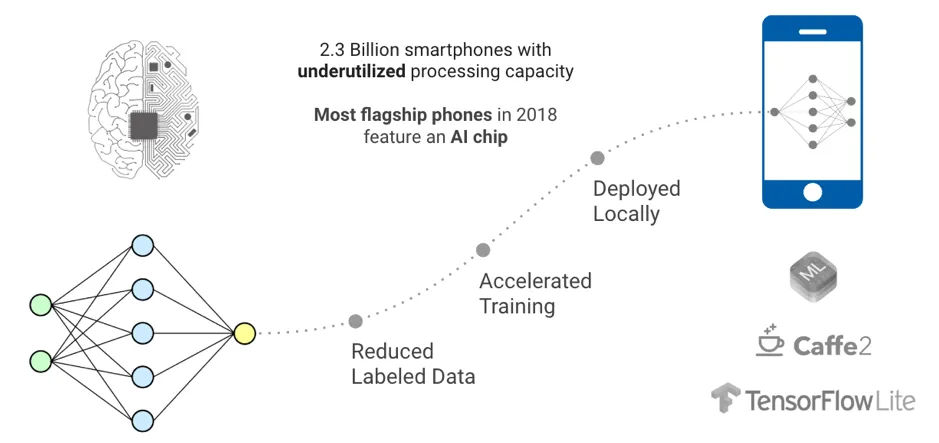When we pull our phones out of our pockets, this is often done to search for information. A tap in the Google search box presents us with suggested searches — then ultimately the results of our intended query. In this innocuous interaction, a series of connected events play out, all putting our personal data at risk of exposure. While that might imply some sinister intent, the truth is that Google (and more generally other providers of digital information and services) have created systems to better understand their users. These AI-based systems enable quicker interactions with our devices and convenient user interfaces. But there is a catch. Whether you search, look at videos or play games, these systems collect data that exposes our most intimate and private details. There is a better way.
Let us illustrate this for search and first discuss what is happening when you search for something and are presented with auto-complete suggestions. All the data that is generated by users through forms and browsers is collected and stored centrally. A massive AI modeling system is engaged, indexing and sorting this information from millions of users. From there, the results of this (predictive search) are then pushed back to your personal device. The result of this AI-based inference becomes your possible search queries as you are typing. The key to changing how our data is used is changing the methodology of the process.
However, companies operating personalization services such as search, films, or business news have learned that AI models can exist on the devices themselves rather than on the servers of the operating company, based on a prime model supplied to the devices. This would create our own personal interaction histories on our devices and the AI model would become more personalized based on our behavior. To make it even more productive, we have to consider ways that we can then share this knowledge with other devices in the pockets of other users without revealing the personal data that resides within each individual AI model.
That is the problem that Federated Machine Learning seeks to solve. How can we still receive the full benefits of predictive AI modeling without sharing personal data among different users and exposing it to operating companies?
#machine learning #data analytics #data security #data privacy #data-science
